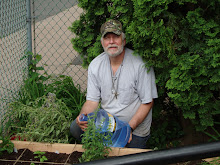
We can never love our neighbor too much. There is nothing small in the service of God. - St. Francis de Sales
Most major faiths preach compassion, even though they differ about what it means. For Francis, compassion is inspired by the example of Jesus and by the mystical presence of Christ in every human being. But for Buddhists, compassion is seen as a way to break down the illusory barriers separating human from human and keeping all from union with the Ultimate.
We can debate such differences forever, but that's precisely where too many people stop. compassion, if it has any meaning at all, need to be translated into action.
One way to show compassion and grow in your love for others is to practice the discipline of listening. Instead of focusing on yourself and your own concerns and troubles, try getting inside someone else's skin by hearing them deeply, earnestly, and lovingly.
While listening to another, resist the all-too-human urge to critique what is being said. Compassion isn't about whether you approve or disapprove of what someone is saying; it's about understanding another person. It isn't about promoting your agenda; it's about comprehending someone else's.
[taken from The Lessons of St. Francis: How to Bring Simplicity and Spirituality Into Your Daily Life; John Michael Talbot with Steve Rabey, 1997]










